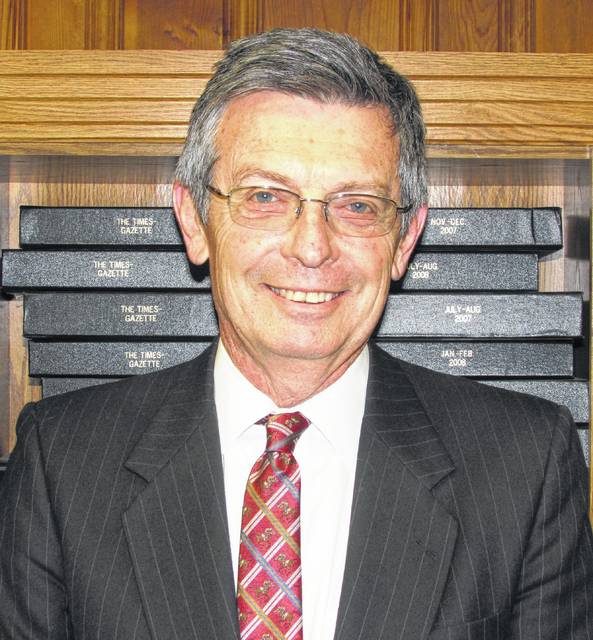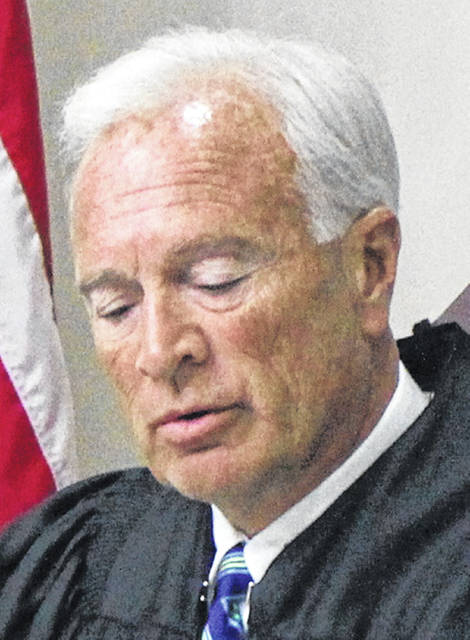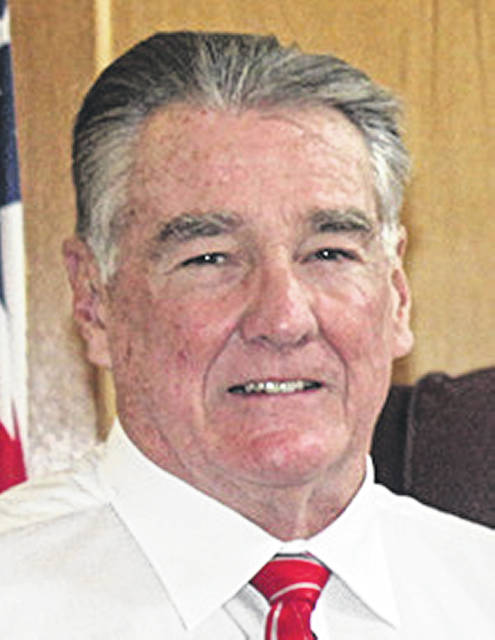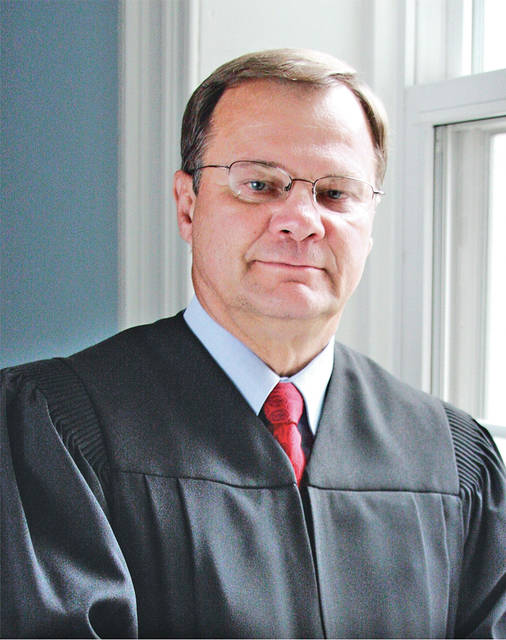



Editor’s note — This is the first in a three-part series examining Ohio Issue 1, a controversial constitutional amendment on the November ballot, from a variety of local perspectives.
The four judges presiding over Highland County’s courts say Ohio Issue 1, a constitutional amendment that aims to reduce incarceration and divert the financial savings to drug treatment initiatives, will prove detrimental to Ohio and Highland County.
Highland County Common Pleas Court Judge Rocky Coss, Hillsboro Municipal Court Judge David McKenna, Highland County Juvenile and Probate Court Judge Kevin Greer and Highland County Court of Madison Township Judge Robert Judkins all told The Times-Gazette in recent days that they are opposed to the issue for a number of reasons.
The most outspoken is Judge Rocky Coss, who presides over Highland County Common Pleas Court.
In an interview last week, Coss raised a laundry list of concerns about the issue, and has in recent days made presentations to local groups, including Hillsboro City Council, about why he believes the issue will backfire. Coss has also distributed a pamphlet detailing many of his reservations, including concerns about sentencing guidelines, probation and court-ordered drug treatment enforcement policies, sentence reductions and financial issues.
As previously reported, the issue, known as the Ohio Neighborhood Safety and Drug Rehabilitation Amendment, reclassifies fourth- and fifth-degree drug possession felonies as misdemeanors retroactive to January of 2018, and prohibits jail sentences for those offenses unless the offender commits the same crime three times in two years.
The amendment includes an administrative 25-percent prison sentence reduction for those currently incarcerated, unless they are serving a life sentence without parole or a sentence for murder, rape or child molestation, although Coss said “child molestation” is not listed as a crime in Ohio’s statutes.
The amendment also prohibits prison sentences for people who have violated probation with anything other than a new criminal offense, Coss said, which means probationers can harass their victims or leave the state for years without consequences.
Coss said if the amendment passes, courts will not be able to enforce court-ordered drug treatment for defendants because there will be no threat of prison.
According to Coss, a similar measure approved in California and Oklahoma has caused problems for those states, with California seeing a spike in the crime rate and the Oklahoma prison system requesting $1 billion to build new prisons due to an uptick in jailable offenses.
Coss criticized the amendment in Ohio as “politically convenient” for out-of-state interests, such as George Soros and Mark Zuckerberg, who have both thrown funding behind the issue.
Coss said that the organization spearheading the amendment in Ohio, the Ohio Justice and Policy Center, is a prisoner advocacy firm, and that Issue 1 is nothing more than a way to get criminals out of jail under the guise of fighting the opioid crisis. The judge said Issue 1’s main backers see the drug crisis as “politically convenient.”
Coss also said the financial details of the amendment are sketchy at best and are not based on analysis of Ohio’s prison system. The amendment says 70 percent of the money the state saves from lower incarceration rates will be diverted toward drug treatment grants, but there is no distribution plan in place. In fact, Coss said many agencies will likely lose grants awarded based on keeping defendants out of prison because they won’t be able to go to prison anyway.
“I don’t think we’ll have more money, I think we’ll lose money,” he said.
Coss said the amendment will cause a greater caseload to fall on McKenna in Municipal Court and will crowd the county jail, and McKenna agreed.
McKenna said as many as 80 percent of people in treatment programs through a local counseling service have prison sentences hanging over their heads, and without that consequence, they would likely not even be enrolled.
He also said the amendment itself is difficult for even attorneys and judges to understand.
“It’s like peeling a rotten onion,” he said. “With every layer it just gets worse.”
McKenna said the amendment is “far from being a solution.”
“It’s going to cause so much more damage than we can anticipate,” he said.
Judkins, whose jurisdiction includes Greenfield and the surrounding areas, said the issue “affects the justice system profoundly,” and if passed, it will “have a tremendously adverse affect on the justice system in Highland County and across the State of Ohio.”
Judkins said taking away the consequences of not completing court-ordered drug treatment will cause the drug rehab success rate to plummet.
“I have found out in 36 years of being on the bench that the only way to rehabilitate people is if you have consequences over their heads of confinement if they do not follow through with their rehab requirements,” he said.
Judkins said until a couple years ago, the local success rate of drug treatment programs was very low. With the advent of newer, more innovative programs, Judkins said there is a 60- to 70-percent success rate.
Judkins said he’s also concerned about the issue being a constitutional amendment — a sentiment echoed by Greer, who said the legislative process is the more appropriate engine for the reforms proposed in Issue 1.
“If things don’t work out as planned, it’s easier to make modifications and changes to the law if it’s done through the legislature instead of a constitutional amendment,” Greer said. “If we’re trying to change the criminal justice system, the proper way to do that is through the legislature, not through a constitutional amendment.”
Greer said if the issue is passed, it won’t affect his court as much as others in the county, but, “we deal with the parents of all these children, and how they’re treated in the adult system… could have some indirect consequences in juvenile court.”
The four judges have signed a letter to the editor, appearing in print on Thursday’s opinion page, that describes the issue as “a legal, social and financial disaster.” In the letter, the judges urge voters to think carefully before voting. To read the judges’ letter to the editor, click here.
In Coss’ interview, the judge said the issue seems like a good idea on the surface, but “the devil is in the details.”
Reach David Wright at 937-402-2570.





